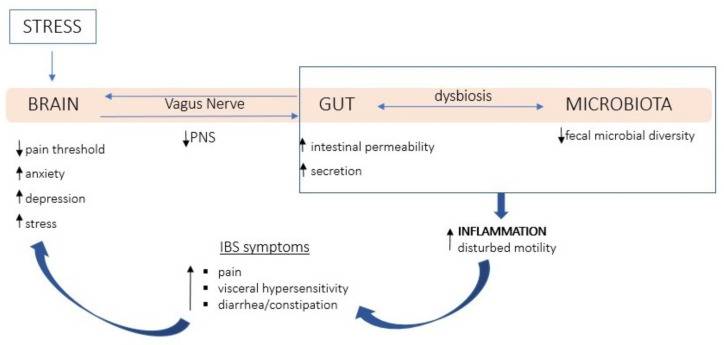Figure 1.
Schema the relationship between disturbed autonomic balance and IBS symptoms. Note: Permanent stress and negative emotions inhibit the vagus nerve function, which manifests itself in hypoactivity of the PNS. Under the stress, the homeostasis of the intestinal epithelium is disturbed, and the microbiota composition is modified, e.g., reduction of fecal microbial diversity, which may lead to dysbiosis. Impaired secretory and barrier functions of the intestinal mucosa are characterized by increased intestinal permeability and secretion, which contribute to the development of intestinal inflammation and disturbances in intestinal motility. Inflammation causes pain, problems with defecation (diarrhea/constipation), and the visceral hypersensitivity increases. These symptoms affect neurophysiological changes (including lowering the pain threshold) and mental changes (increased anxiety, depression) in the brain, which secondarily generates stress and reduces the anti-inflammatory efficiency of the vagus nerve. This simplified elaboration is based on Bonaz et al., 2018 [11] and Drossman, 2016 [1].

